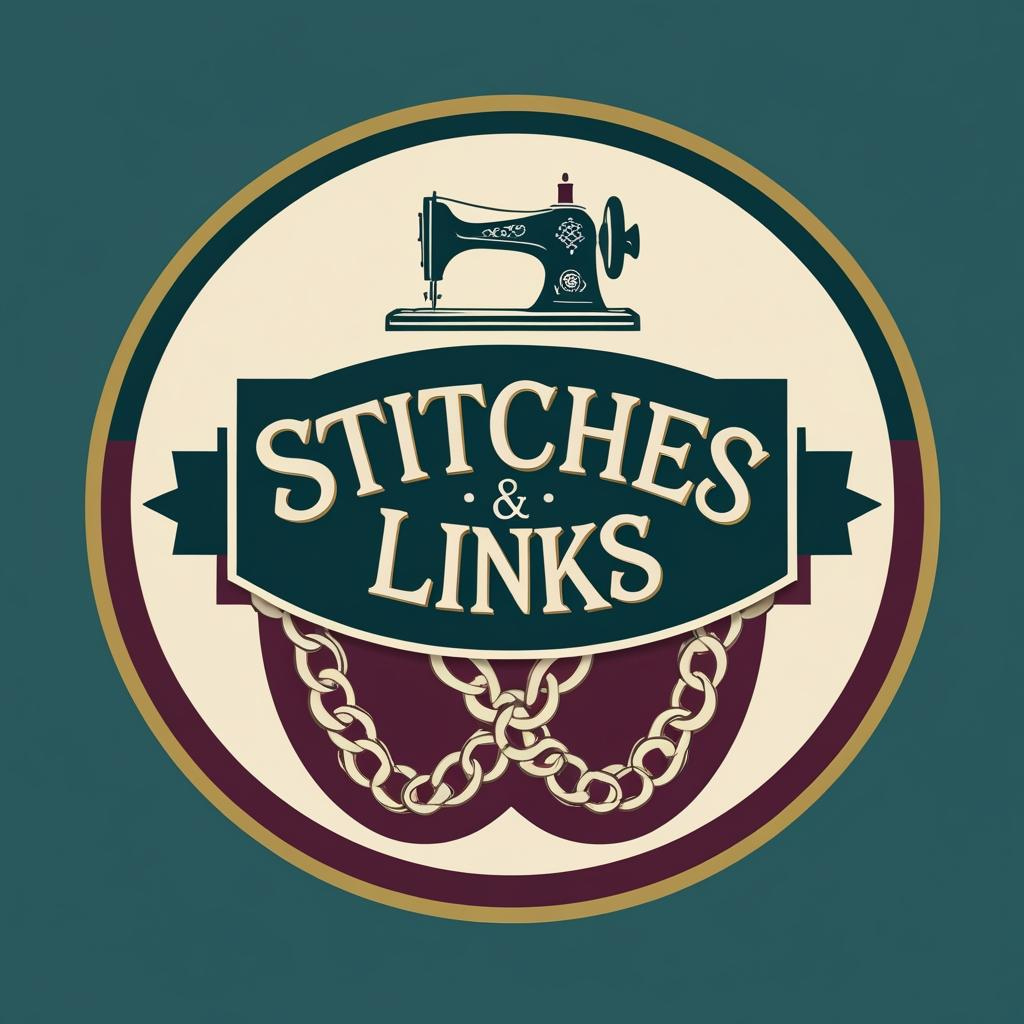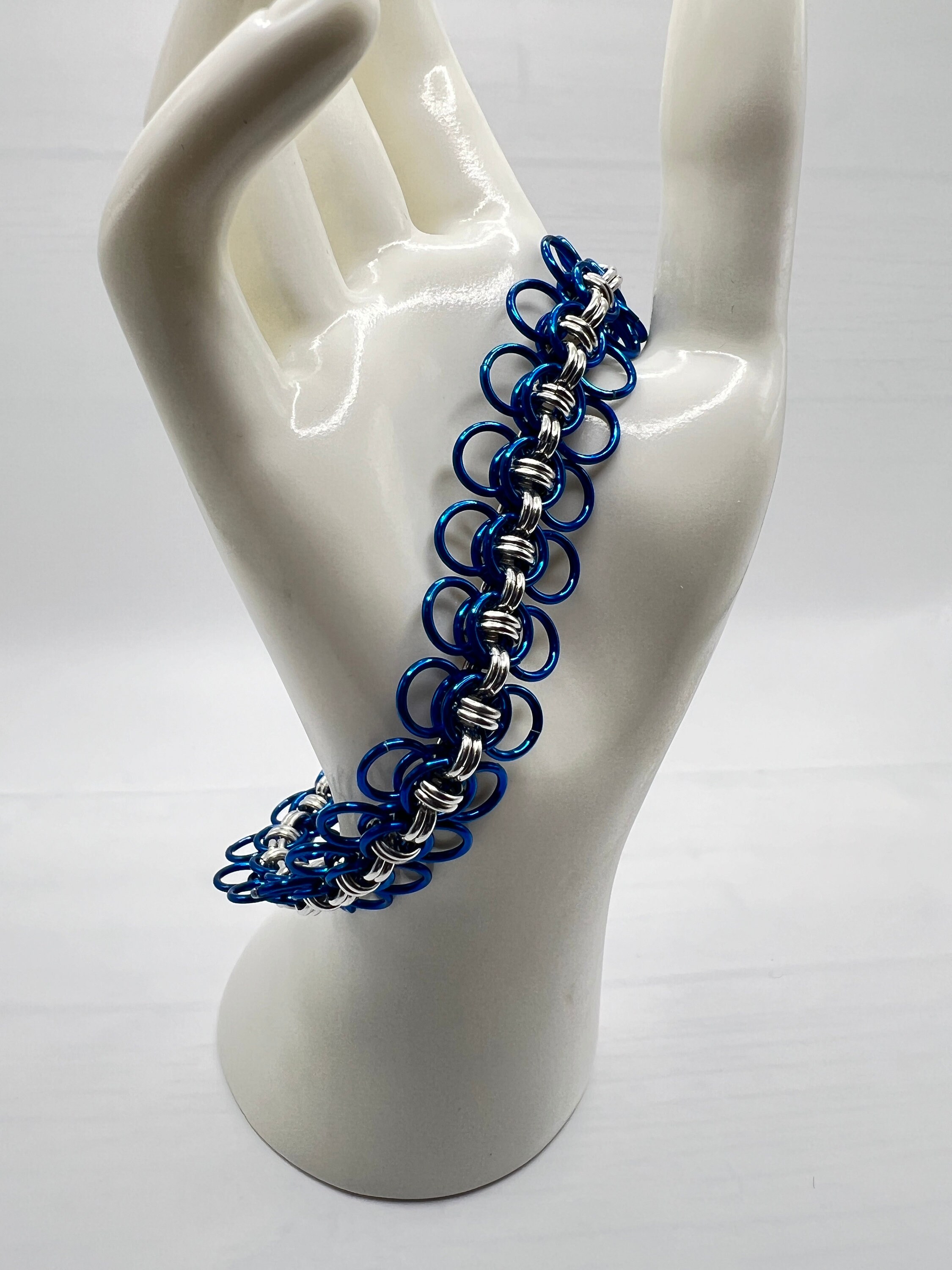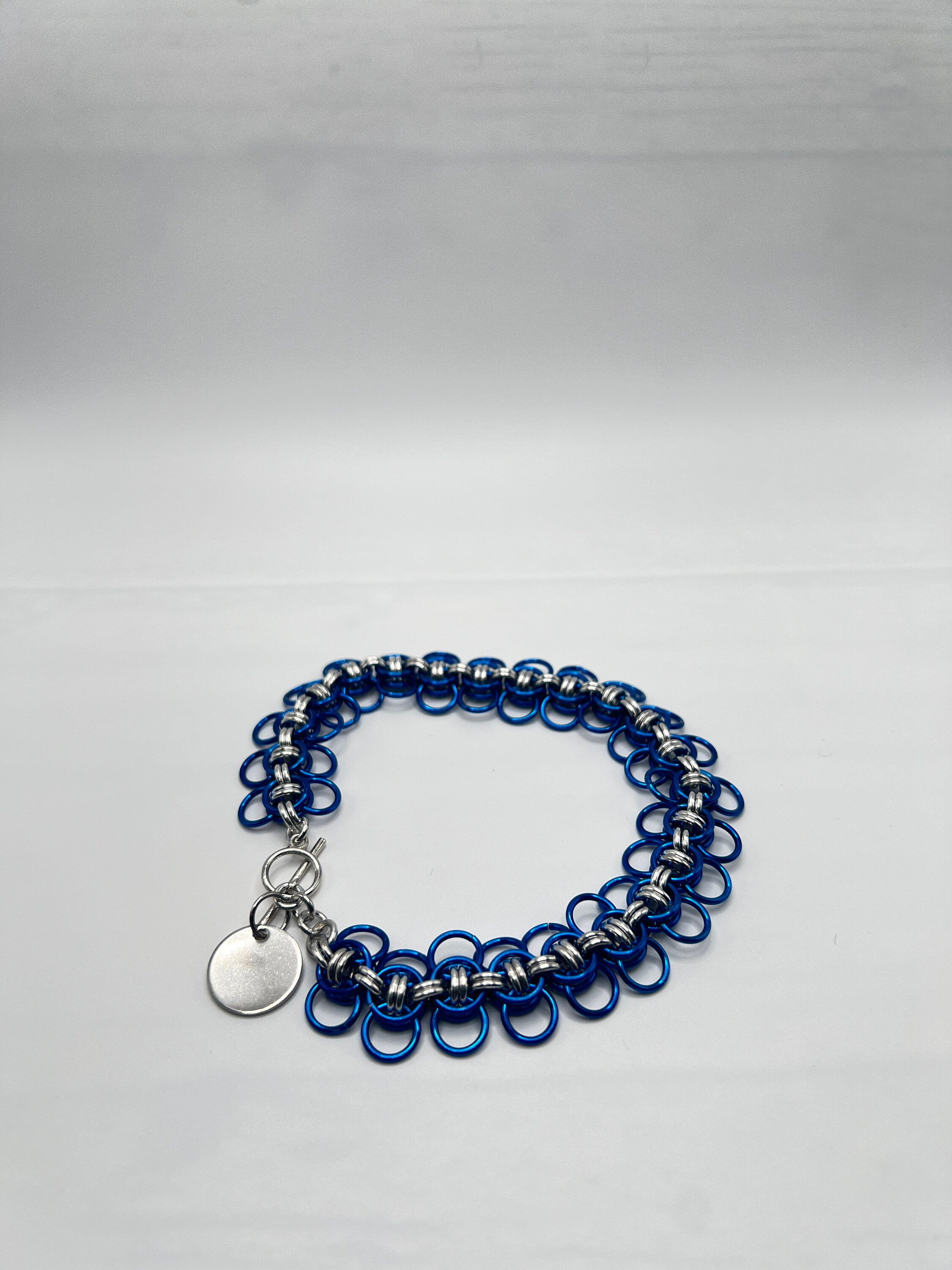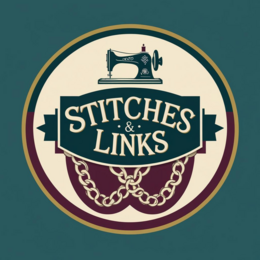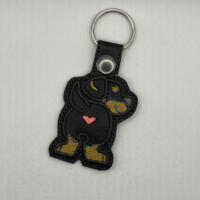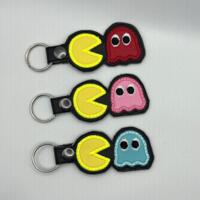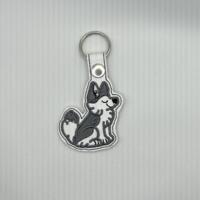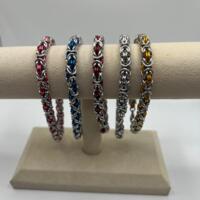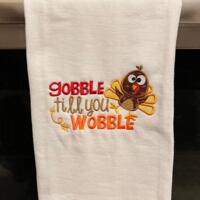About this Product
Celtic Wings Chainmaille Bracelet; Handmade with Blue & Silver anodized aluminum jump rings. Aluminum is lightweight and hypoallergenic. It will not rust or tarnish. It can be cleaned in warm soapy water, lightly cleaned and either towel or air dried. Although most pieces are fairly sturdy, they can be damaged if misused or mishandled. If a piece gets damaged, contact me about repair costs. A picture of the damage will be useful to determine the cost for the repair. For any questions or inquiries, feel free to reach out to us via messages here on Etsy. We're here to ensure your complete satisfaction.
Please annotate wrist size. When choosing the size, add an extra 1/2 inch to your wrist for toggle clasps and 1/4 inch for lobster claw clasps. Add more for a looser fit.
Stitches & Links
How it’s Made
Chainmail jewelry is made using the same ancient weaving techniques once used for armor but adapted for beauty instead of battle. Instead of steel links, jewelry makers often use colorful anodized aluminum, sterling silver, stainless steel, copper, or even gold.
Here’s how it’s typically created step by step:
1. Choosing and Preparing the Rings
Chainmail jewelry is built from jump rings—small metal loops made from wire.
Ring size (wire thickness and diameter) determines the weave pattern that can be used.
2. Selecting a Weave
Each piece is made from interlocking rings in a repeated pattern, called a weave.
Common jewelry weaves include:
Byzantine (intricate and elegant, often used in bracelets and necklaces)
European 4-in-1 (flat sheet weave, traditional armor style but also used in wide cuffs)
Box Chain / Inca Puno (dense, square-like chain)
Persian Weaves (spiral-like and fluid, great for chains and earrings)
3. Opening and Closing Rings
Each ring is opened with two pairs of pliers (never by pulling apart sideways).
The open ring is threaded through specific existing rings according to the chosen weave.
The ring is then closed with a flush alignment, so it looks seamless.
4. Building the Pattern
One by one, rings are added until the pattern grows into a chain, sheet, or sculptural form.
This is slow, detailed work that requires precision—poorly closed rings can snag or cause the weave to collapse.
5. Adding Finishing Touches
Once the main chain or structure is finished, clasps, ear wires, or pendants are attached.
Some jewelers polish or tumble their pieces for a smooth, shiny finish.
Anodized aluminum or enameled copper adds color variety, while silver or gold offers a luxurious look.
6. Optional Embellishments
Beads, gemstones, or charms may be woven into the design for extra texture and sparkle.
The beauty of chainmail jewelry is that it combines metalwork with textile-like weaving, creating pieces that are both flexible and durable.
